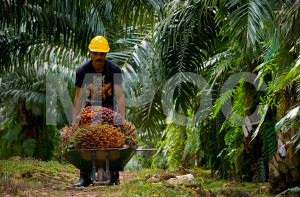TPPA, Labour Rights and Palm Oil
Over the past few years, there has been a push by a number of US-based labour groups and private interests to damage public perceptions of labour rights and environmental practices in countries participating in the Trans-Pacific Partnership Agreement (TPPA).
The TPPA is a broad, multilateral trade agreement comprising 12 countries including Malaysia. The agreement will likely result in higher levels of exports of vegetable oil-derived products, electronics and garments to the US. However, it pledges to exclude countries that do not meet standards on labour and human trafficking set by the US Department of Labour (DOL).
In October 2015, the TPPA participants announced that they had reached an agreement. The final treaty will require US Congressional approval. During this process, it is anticipated that efforts will be sustained to heighten negative perceptions of labour practices in participating countries.
 Malaysia has a large number of migrant workers, mainly from Southeast Asia and South Asia, because it offers relatively better economic opportunities. This is not unlike the US, with migrant farm workers from Latin America. Roughly a quarter of the migrant workers in Malaysia are employed in the mining, fishing, forestry and agricultural sectors.
Malaysia has a large number of migrant workers, mainly from Southeast Asia and South Asia, because it offers relatively better economic opportunities. This is not unlike the US, with migrant farm workers from Latin America. Roughly a quarter of the migrant workers in Malaysia are employed in the mining, fishing, forestry and agricultural sectors.
Up until 2005, broad allegations of human trafficking or forced labour in Malaysia were concerned with sexual exploitation and prostitution by criminal networks, as is the case in many countries.
There have since been a number of reports on alleged use of forced labour in Malaysia. The reports were issued by the US State Department, the UN Inter-Agency Project on Human Trafficking, and NGOs like Amnesty International and Verite.
Weak basis for US claims
A small and ad hoc collection of NGO campaign material has accumulated over the past five years; for the most part, these appear to be based on desk research. The reports have been utilised by the DOL as part of its assessment of materials or goods that are, in its view, produced using forced labour or child labour.
The DOL has made three assessments in relation to labour rights. Malaysian palm oil features in only one of these – in a list of goods that the DOL ‘has reason to believe’ might be produced with either child labour or forced labour.
The methodology for the list is considerably weaker than the DOL’s other assessments, and generates results based on media materials and advocacy campaigns. This should not come as a surprise. The DOL is highly political and subject to significant influence from protectionist unions like the AFL-CIO and SEIU.
An assessment of the bibliography used by the DOL leads to two conclusions in relation to Malaysia’s oil palm industry:
- Claims about child labour are for the most part anecdotal and cannot be considered systemic.
There are a number of claims that children of (generally Indonesian) migrant workers are supporting their parents in their work on plantations. This would appear to be more common in smaller, more remote and independent oil palm estates. However, given the parental consent involved or implied, no widespread or systematic child labour has been found in studies by independent researchers or the Malaysian government.
- Claims of systematic use of forced or indentured labour are also unjustified.
A significant regulatory change in 2006 saw the introduction of licensing of outsourcing companies. This, in 2007, ended the requirement that the companies attach a migrant to a particular employer. In other words, migrants are no longer employed by the company using their labour; they are employees of the outsourcing company that supply labour. This has led NGOs to level claims about predatory behaviour.
Such complaints are clearly a regulatory issue, as legal responsibility for migrant workers lies with the outsourcing companies. However, there is also a role for industries that utilise their services. They should ensure – by way of due diligence procedures or a code of practice – that they do not make use of outsourcing companies which engage in exploitative practices.
The oil palm industry has been working with the government’s inter-ministerial task force to assess the nature of these claims and to determine how any problems can be resolved. This includes the implementation of the Malaysian Sustainable Palm Oil standard, which includes adherence to labour laws and the minimum wage structure which were revised in January 2015.
Third iteration of anti-palm oil campaign
The global campaign against palm oil has gone through two phases to date. A campaign on health grounds was launched in the US in the 1990s and 2000s. This was followed by an environmental campaign spearheaded by producers of competing oils in Europe.
The labour campaign appears to be the third iteration of the campaign. It has spread in the media and through organisations such as the Pulitzer Centre, which has received funding from centre-left organisations to cover labour issues.
Accenture, an international consultancy also took part – again, receiving funding to do so. The Rainforest Action Network (RAN) undertook coalition building and campaign activity in 2014 and 2015 that called for palm oil companies to adhere to labour standards.
The most comprehensive report was published by Humanity United and Accenture. It is critical of labour standards in the palm oil industry but there are significant problems with the claims made:
- In a series of three claims about the industry’s treatment of workers on plantations, no sources are cited.
- The report at various points conflates Indonesia and Malaysia, specifically in relation to the arrangements between plantation companies and smallholders.
- Some of the source evidence on child labour is more than 30 years old, meaning that it is significantly out of date not just in terms of quantified data, but also qualified data.
- Some of the numerical estimates cited by advocacy groups appear to greatly overstate published academic estimates in relation to stateless children.
The campaign has resulted in increased funding to traditionally environmental NGOs to advocate for labour rights in relation to palm oil. RAN, for example, received US$160,000 from the Omidyar Group to undertake labour campaigns in relation to palm oil.
The issue is thus being used as an opportunity by other interest groups – the labour, environmental and trade union movements, competing industries and the compliance industry (they make money from more US regulations) – to further their own political and economic interests, much to the detriment of the palm oil industry.
MPOC










Leave a Reply